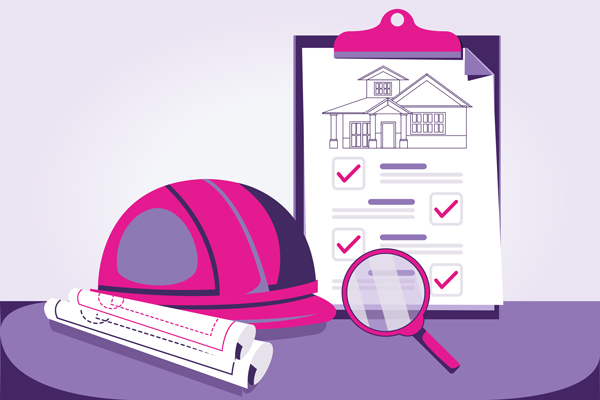Building Survey Report: What to Do After Receiving from a Surveyor
What to Do I do after Receiving a Building Survey Report
Buying a home is a big decision, and it's important to do your due diligence before you sign on the dotted line. One of the most important things you can do is get a building survey. This will give you an independent assessment of the property's condition and identify any potential problems.
If you've received your building survey report and there are some issues, don't panic. Here's what you need to do next:
- Understand the results of the survey. The first step is to read the report carefully and understand what the surveyor has found. They will have highlighted any areas of concern and made recommendations for further investigation or repairs.
- Establish the cost of repairs. If the surveyor has recommended repairs, you'll need to get quotes from contractors to get an idea of how much they will cost. This will help you to decide whether you still want to buy the property, or whether you need to negotiate a lower price with the seller.
- Decide whether you still want to buy the property. Once you know the cost of repairs, you need to decide whether you are still happy to buy the property. If the repairs are too expensive, or if you don't have the time or skills to do them yourself, you may need to walk away from the sale.
- Negotiate with the seller. If you do still want to buy the property, you can try to negotiate a lower price with the seller. You can use the survey report to support your case, and you may be able to get the seller to agree to pay for some or all of the repairs.
If you're not sure what to do after receiving your building survey report, it's a good idea to speak to a qualified conveyancer or property lawyer. They can help you to understand the report and advise you on the best course of action.
What if I don't have the money to fix the problems?
If you don't have the money to fix the problems, you may need to walk away from the sale. However, you may be able to get the seller to agree to pay for some or all of the repairs.
What if the seller refuses to negotiate?
If the seller refuses to negotiate, you may need to decide whether you are still happy to buy the property at the original price. If not, you may need to walk away from the sale.
What if I don't understand the report?
If you don't understand the report, you should speak to a qualified conveyancer or property lawyer. They can help you to understand the report and advise you on the best course of action. Receiving a building survey report with some issues can be daunting, but it's important to remember that you have options. By following the steps above, you can make an informed decision about whether or not to buy the property.
Do you have any other questions about what to do after receiving a building survey report?
4 things surveyors want you to know before you get a survey
Getting a survey is a key part in the process of buying a house, but before you get a survey, here are some things that the experts at Reliable Property Group want you to know.
Alongside lenders and conveyancers, surveyors should be one of the key service providers involved in any buyer’s property journey. Yet many either don’t fully grasp the value of this vital step in the transaction or neglect it completely. There are four key points your surveyor wants you to know when you need a survey – and how you can best use surveys to your advantage to secure the best possible deal.
1. Not all surveys provide the same service
Buyers have always been keen to accelerate the typically slow homebuying process, but the Stamp Duty holiday and subsequent temporary cap has led to many homebuyers cutting corners to the extreme. Some see a survey as an unnecessary delay to proceedings, so forego commissioning an independent surveyor and instead rely on the free, lender mortgage valuation.
The difference between the two may not be clear initially – but lender surveyors are really only interested in protecting the lender’s investment with a report confirming the property’s value. Buyers must instead commission a report that protects their interests, a survey that can provide a full report on the state of the property and inform their long term plan around any future works required.
A full rundown of the different types of surveys can be found on the Reliable Property Group website, but to quickly summarise the three most common reports:
- The RICS Property Valuation Report – provides a current market valuation of the property and a summary of the details. Not an in depth survey, so only advisable if tentatively checking whether an offer seems fair.
- The RICS Home Buyers Report (Level 2 survey) – best suited for properties younger than 100 years old made of standard construction materials (brick and tile) with no obvious signs of damage.
- The RICS Building Survey (Level 3 survey) – for properties older than 100 years which have been altered, or an unusual build. Essential if you plan to do your own work on the property.
2. Your surveyor is in your corner
A common buyer mistake is to misunderstand allegiances during the purchase journey. To clarify: conveyancers are relatively neutral and want to get the transaction over the line while ensuring everything is conducted legally, while the estate agent is working for the seller. They will act as a go between, but their main prerogative is completing the purchase at the highest possible final offer, as soon as possible. Lenders, somewhat understandably, are primarily interested in protecting their investment – and as mentioned above, their surveyors work for them.
Meanwhile, an independent surveyor is definitely on your side. Think of them as a GP, diagnosing your prospective new home and informing you of its current health, alongside any problems that may arise in the future. It’s helpful to keep this in mind throughout the process and steer situational questions their way. They’re one of the people in your corner during the buying process!
3. It’s wise to ask questions
It’s easy to fall into the trap of feigning expertise during the homebuying process. With so much jargon and negotiation flying around, it’s understandable that you want to appear in a stronger, more knowledgeable position than you actually inhabit. However, a Home Buyers Report provides a detailed survey on the state of the house and such a hefty document can often appear fairly daunting.
As a quick overview – the report will cover background details on the residential dwelling, its location and an estimate for the rebuild cost for insurance purposes. The main body will include the assessment of the condition of the house, including the presence of any damp-proofing, drainage or insulation issues. The surveyor will also check the woodwork condition for any woodworm or rot and test walls for damp. If other issues are spotted, they will highlight urgent problems that will require a further specialist assessment.
Don’t try and bluff your way through the report – ask your surveyor to clarify any points you’re unsure of, after all, they work for you!
4. What to do with your survey
Arguably the most important point to grasp is how powerful a survey can be to a buyer. It’s obvious that a surveyor’s report allows you to budget for any immediate maintenance or renovation when they move in.
However, surveyors themselves can also help buyers bring the price of the property down – even if you think negotiations are long since over. Armed with evidence that considerable work will be required to fix issues that weren’t highlighted before the initial offer, surveyors can encourage buyers to reopen negotiations. If the seller is unwilling to make repairs prior to sale, they should be open to lowering the offer price. With this in mind, buyers should avoid being scared off by the seller’s threats to pull out of the deal. If your surveyor found something, another buyer’s surveyor will too.
Knowing these 4 facts can help demystify the surveying process. And remember, if in doubt, ask your surveyor for anything you don’t understand before or after your report, as they will always be willing to help prove the value of a proper survey.


